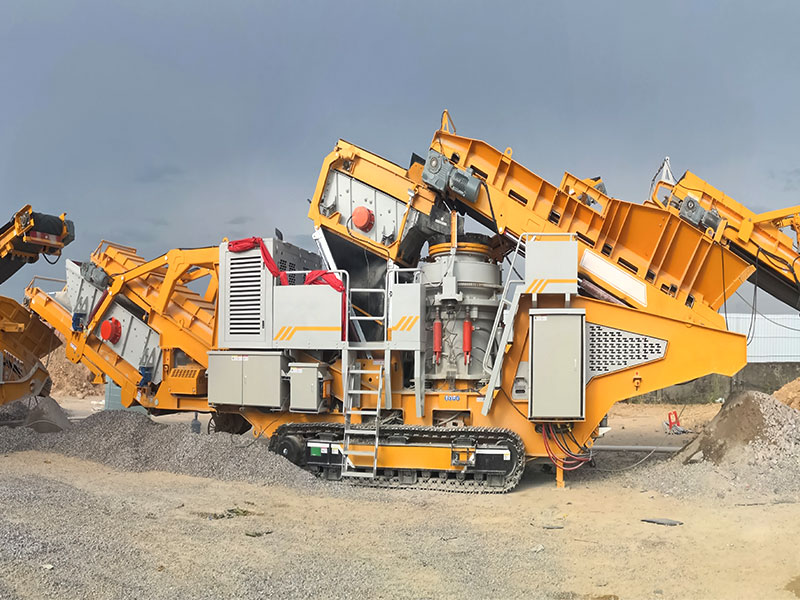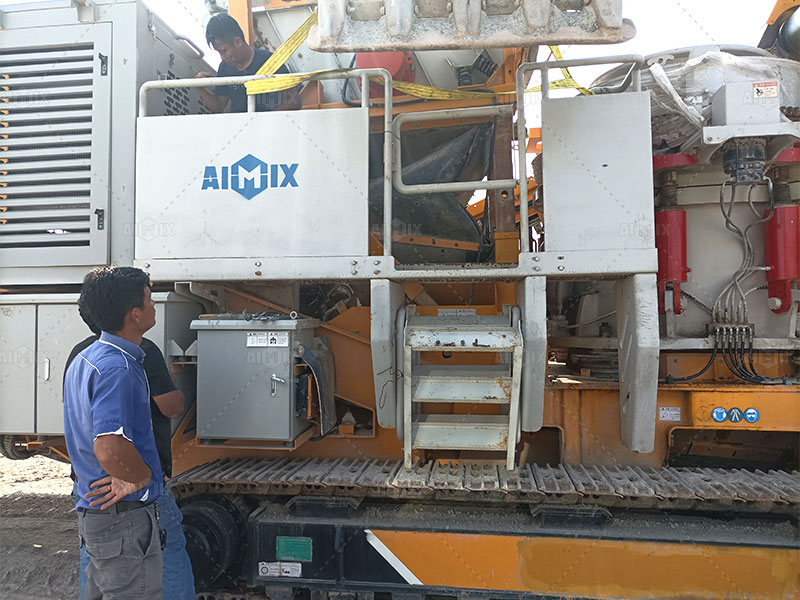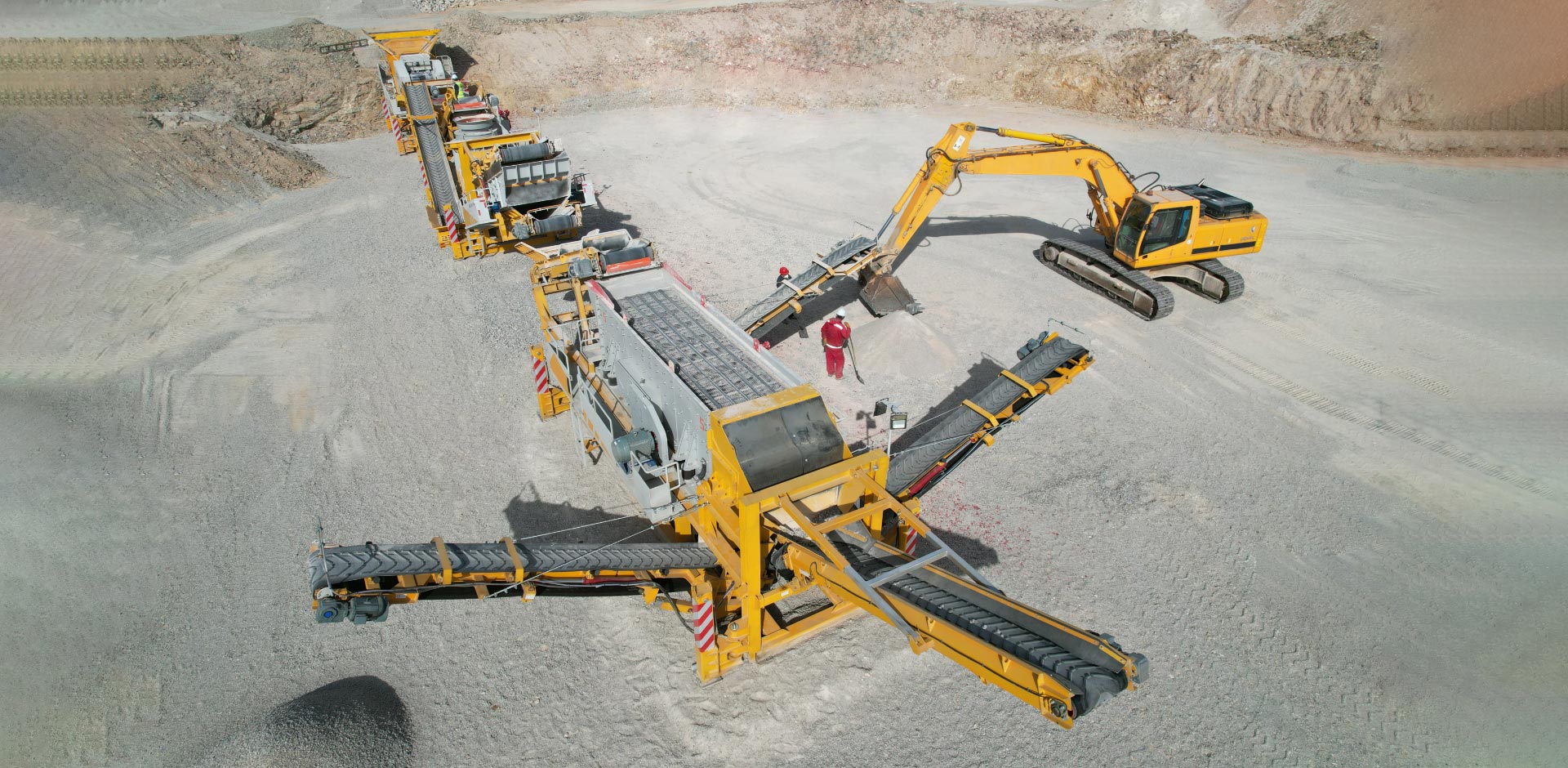Mobile crushing plants are vital components in various industries, including mining, construction, and recycling. These plants are designed to efficiently crush large rocks and debris into smaller, more manageable pieces. However, like any complex machinery, mobile crushing plants are prone to encountering several operational challenges.
Mechanical Failures
Mechanical failures are among the most common problems encountered during the operation of mobile crushing and screening plants. Components such as crushers, conveyor belts, and screens are subject to wear and tear due to the high-stress environment they operate. Over time, parts may malfunction or break down, leading to unexpected downtime and production delays.

Regular maintenance and inspections are essential for identifying potential mechanical issues before they escalate into major problems. Implementing a proactive maintenance schedule can help prevent costly breakdowns and extend the lifespan of critical components.
Material Jamming
Material jamming occurs when oversized or irregularly shaped rocks get stuck in the crushing chamber or along the conveyor belts. This can happen due to inadequate feeding practices or the presence of foreign objects in the material stream. Material jamming not only disrupts the crushing process but also poses safety risks to plant operators.
To mitigate the risk of material jamming, operators should implement proper feeding techniques and install effective screening mechanisms for the portable impact crusher to remove oversized debris before it enters the crushing chamber. Additionally, investing in advanced technologies such as metal detectors and magnets can help identify and remove metallic objects from the material stream, reducing the likelihood of jamming incidents.
Dust and Noise Pollution
Mobile crushing plants generate significant amounts of dust and noise during operation, posing environmental and health hazards to workers and nearby communities. Dust emissions can result from the crushing and screening of materials, while noise pollution is primarily caused by the operation of crushers, conveyors, and diesel engines.

To address these issues, operators can implement dust suppression systems and noise-reduction measures within the plant. Installing enclosures around crushers and conveyor belts can help contain dust and minimize noise propagation. Additionally, using water sprayers, dust collectors, and acoustic barriers can further mitigate environmental impacts and improve working conditions for plant personnel.
Fuel Consumption and Energy Efficiency
Mobile crushing plants rely heavily on diesel-powered engines to operate crushers, conveyors, and auxiliary equipment. High fuel consumption not only increases operational costs but also contributes to carbon emissions and environmental degradation. Improving fuel efficiency and reducing energy consumption are therefore paramount for sustainable plant operations.
Implementing fuel-efficient technologies such as hybrid power systems and automatic engine idle shutdown can help minimize fuel consumption and lower operating costs. Furthermore, optimizing crushing screening plant settings and adopting energy-saving practices can enhance the overall efficiency of the crushing process while reducing the environmental footprint.
Conclusion
While mobile crushing plants offer numerous benefits in terms of productivity and versatility, they also face several operational challenges that can impact performance and reliability. From mechanical failures to environmental concerns, addressing these issues requires a comprehensive approach that combines proactive maintenance, technological innovation, and adherence to best practices.
By recognizing and mitigating potential problems during the operation of mobile jaw crusher for sale, operators can optimize production efficiency, minimize downtime, and ensure the safety and well-being of personnel and surrounding communities. Continuous monitoring, regular maintenance, and investment in advanced technologies are key to overcoming these challenges and maximizing the potential of mobile crushing operations.
